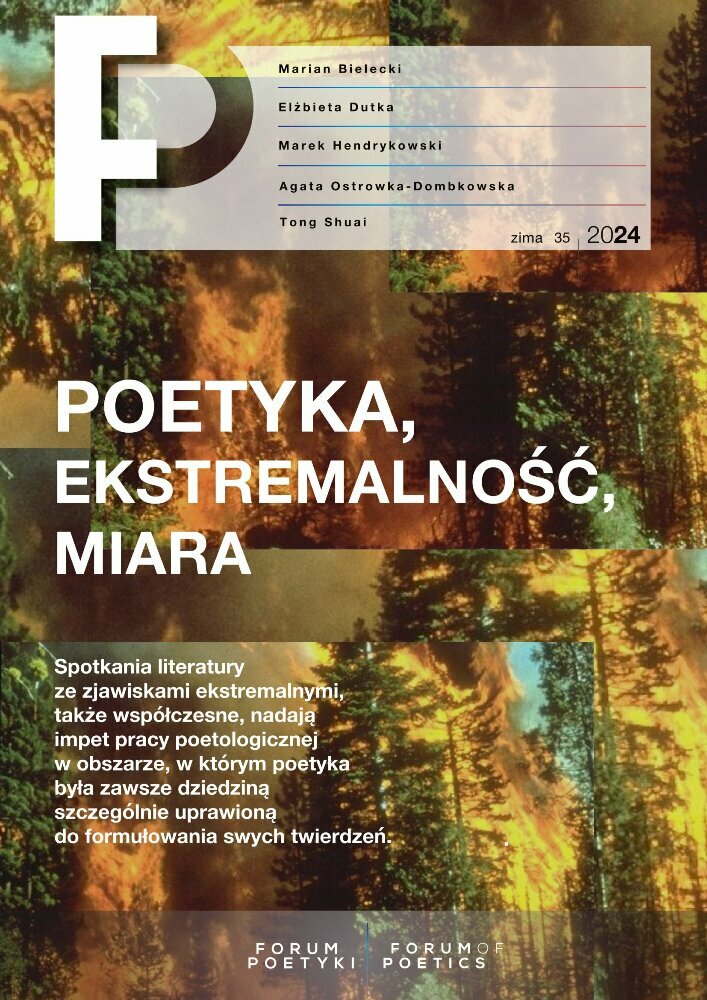Abstract
This research paper attempts to explore an intersection between psychoanalysis and ecocriticism in Japan. Specifically, applied to the literary descriptions in the work “2:46 Aftershocks: Stories from the Japan Earthquake (2011)” from the eco-psychological viewpoint. The study focuses on interpreting and discussing four aspects of how individuals who experienced the Great East Japan Earthquake dealt with feelings of inferiority, acceptance of reality, human-nature relationships, and equality in a horizontally structured society. Furthermore, the paper emphasizes the potential of using eco-psychology to address environmental issues in world literature, which aims to enhance readers’ understanding of both Eastern and Western perspectives on the environment and underscore the significance and necessity of living in harmony with nature.
References
Adelstein, Jake. “#2:46 Aftershocks: Stories from the Japan Earthquake Published. Give a Little, Learn a Lot, Help Some People”. Japan Subculture Research Center, 12.04.2011.
Adler, Alfred, Colin Brett. Understanding Life. Center City, Minn.: Hazelden, 1998.
Carlson, Jon, Matt Englar-Carlson. Adlerian Psychotherapy. Washington: American Psychological Association, 2017. DOI: https://doi.org/10.1037/0000014-000
Cornyetz, Nina, J. Keith Vincent. Perversion and Modern Japan. London: Routledge, 2010. DOI: https://doi.org/10.4324/9780203880425
Cryer, Paul, Helen Kopnina, John J. Piccolo, Bron Taylor, Haydn Washington. “Why Ecocentrism Is the Key Pathway to Sustainability | MAHB”. MAHB, 3.07.2017.
Delaney, Brigid. “«Inject That Stoicism into My Veins!»”. Awaken, 1.10.2022.
Delaney, Brigid. . Zachowaj spokój: stoicyzm w praktyce na dzisiejsze czasy. Tłum. Mateusz Rulski-Bożek. Warszawa: Wielka Litera, 2023.
Eisler, Barry. “«2:46: Aftershocks: Stories from the Japan Earthquake»”. Truthout, 22.04.2011.
Felski, Rita. Literatura w użyciu. Red. Ewa Kraskowska, Ewa Rajewska. Tłum. Joanna Borkowska, Katarzyna Dembowy, Karolina Ignaczak, Agnieszka Janowska, Maja Krysztofiak, Anna Michałowicz, Alicja Mużnik i in. Poznań: Wydawnictwo „Poznańskie Studia Polonistyczne”, 2016.
Flores, Linda, Barbara Geilhorn. Literature after Fukushima. Abingdon: Taylor & Francis, 2023. DOI: https://doi.org/10.4324/9781003285328
Freud, Sigmund. „Objaśnianie marzeń sennych”. W: Teorie literatury XX wieku. Antologia, red. Anna Burzyńska, Michał Paweł Markowski, tłum. Robert Reszke, 5–30. Kraków: Wydawnictwo Znak, 2006.
Furukawa, Hideo. Horses, Horses, in the End the Light Remains Pure a Tale That Begins with Fukushima. New York: Columbia University Press, 2016. DOI: https://doi.org/10.7312/furu17868
Garrard, Greg. The Oxford Handbook of Ecocriticism. New York: Oxford University Press, 2014. DOI: https://doi.org/10.1093/oxfordhb/9780199742929.001.0001
Kishimi, Ichiro, Fumitake Koga. Courage to Be Disliked: How to Free Yourself, Change Your Life and Achieve Real Happiness. London: Allen & Unwin, 2019.
Kawakami, Hiromi. Niedźwiedzi bóg. Tłum. Beata Kubiak Ho-Chi. Wydanie I. Warszawa: Tajfuny, 2019.
McCurry, Justin. “Japan Marks 10 Years since Triple Disaster Killed 18,500 People”. The Guardian, 11.03.2021.
Mollinger, Robert N. Psychoanalysis and Literature. Kingston upon Thames: Burnham Incorporated Pub, 1981.
Moloney, James Clark. “Understanding the Paradox of Japanese Psychoanalysis”. The International Journal of Psycho-Analysis 34, 4 (1953): 291–303.
Nakazawa, Shinichi. “Futatsu No «Shizen»” [Dual Nature]. Gendai Shiso 43, 1 (2015): 35–41.
Nariai, Hideki. “The Fukushima Daiichi Accident‒Summary of Comments and Lessons from the Report by the Director General”. Journal of the Atomic Energy Society of Japan 58, 3 (2016): 184–189. DOI: https://doi.org/10.3327/jaesjb.58.3_184
Okonogi, Keigo. “Japanese Psychoanalysis and the Ajase Complex (Kosawa)”. Psychotherapy and Psychosomatics 31, 1-4 (1979): 350–356. DOI: https://doi.org/10.1159/000287357
Roszak, Theodore. The Voice of the Earth: An Exploration of Ecopsychology; with a New Afterword. Grand Rapids, Mi: Phanes Press, Cop, 2001.
Serrano-Muñoz, Jordi. “Reading after the Disaster: Japan’s Reaction to the 3/11 Events through Literature”. Ann Arbor: Association for Asian Studies, 2019.
Shakespeare, William. Hamlet. Tłum. Stanisław Barańczak. Kraków: Znak, 1997.
Sherriff, Patrick. 2:46. Aftershocks: Stories from the Japan Earthquake. London: Enhanced Editions, 2011.
Sofokles. Król Edyp. Tłum. Kazimierz Morawski. Klasyka Literatury. Warszawa: Wydawnictwo SBM, 2020.
Thornber, Karen Laura. Ecoambiguity: Environmental Crises and East Asian Literatures. Ann Arbor: University of Michigan Press, 2012. DOI: https://doi.org/10.3998/mpub.3867115
Wake, Hisaaki, Keijirō Suga, Yūki Masami. Ecocriticism in Japan. Lanham, Maryland: Lexington Books, 2018
License
Copyright (c) 2024 Shuai Tong

This work is licensed under a Creative Commons Attribution-NonCommercial-NoDerivatives 4.0 International License.
Authors of articles are responsible for securing the rights to other publications (texts, tables, drawings and other illustrations) quoted or reproduced in their texts.

